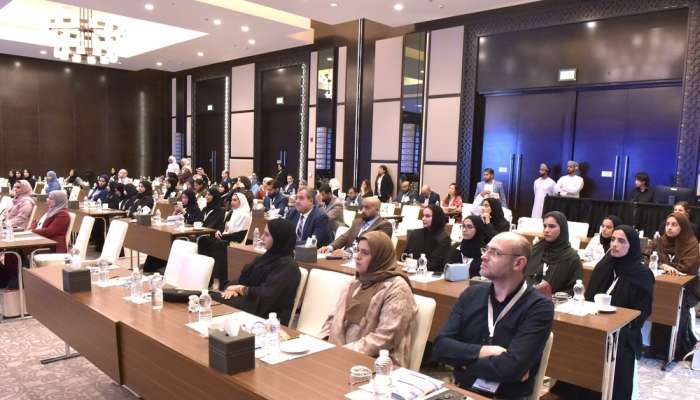The 5th International Middle East Genetics and Metabolic Academy (MEGMA) symposium is currently underway in Muscat, Oman. The symposium is being held under the auspices of Dr. Said Hareb Al Lamki, Undersecretary of the Ministry of Health for Health Affairs, and is organized by the Oman Society for Genetic Medicine in collaboration with the Middle East Genetics and Metabolism Academy. The event has gathered 55 speakers from the GCC countries and other parts of the world, with the participation of 150 medical genetics’ specialists, aiming to enhance knowledge, collaboration, and professional networking in the field.
During the first day of the symposium, several key topics were addressed, including challenges and management strategies in medical genetics, early detection strategies for MPS II, clinical, chemical, and laboratory genetics, response to niacin treatment in a patient with a NAXE gene defect, an overview of Mucopolysaccharidosis type X, non-simple diarrhea: intestinal genetics, management of hereditary metabolic acidosis, advancements in PKU management, new perspectives on emerging treatments for rare diseases, and spinal muscular atrophy in children.
The symposium is set to continue on its second and third days with a workshop on epidermolysis bullosa in the Middle East and North Africa, which will cover topics such as molecular epidemiology in Arab countries, newborn care in early childhood diagnostics, characterisation of a new rare muscle disease, updates on emerging precision therapies for inborn errors of metabolism, integrating genomics and metabolomics for improved rare disease diagnosis outcomes, clinical and molecular characterization of familial hypercholesterolemia in the Omani population, and the impact and benefits of genetic sequencing in families affected by chronic kidney disease in Oman.
Overall, the symposium aims to promote professional networking, support career development for medical genetics’ specialists, and facilitate the exchange of knowledge and expertise in the field. With a range of topics and speakers from various countries, the event serves as a platform for collaboration and learning, with a focus on advancing medical genetics research, diagnosis, and treatment. Participants can expect to gain valuable insights, updates on the latest advancements, and a deeper understanding of genetic and metabolic disorders.
By addressing key challenges, sharing best practices, and discussing emerging treatments and technologies, the symposium plays a crucial role in advancing the field of medical genetics and improving patient outcomes. It also provides a unique opportunity for professionals to connect, exchange ideas, and form collaborations that can lead to further advancements in the diagnosis and management of genetic and metabolic disorders. As the event continues to unfold, participants can look forward to engaging workshops, informative lectures, and practical insights that can enhance their skills and knowledge in the field.
With a focus on rare diseases, genetic sequencing, and personalized medicine, the symposium highlights the importance of continued research and innovation in the field of medical genetics. By bringing together experts and specialists from across the region and beyond, the event aims to foster a culture of collaboration, learning, and advancement in the field, ultimately leading to better outcomes for patients with genetic and metabolic disorders. The symposium serves as a valuable platform for professionals to stay updated on the latest developments, share their expertise, and contribute to the collective efforts to improve the diagnosis and treatment of genetic conditions.











